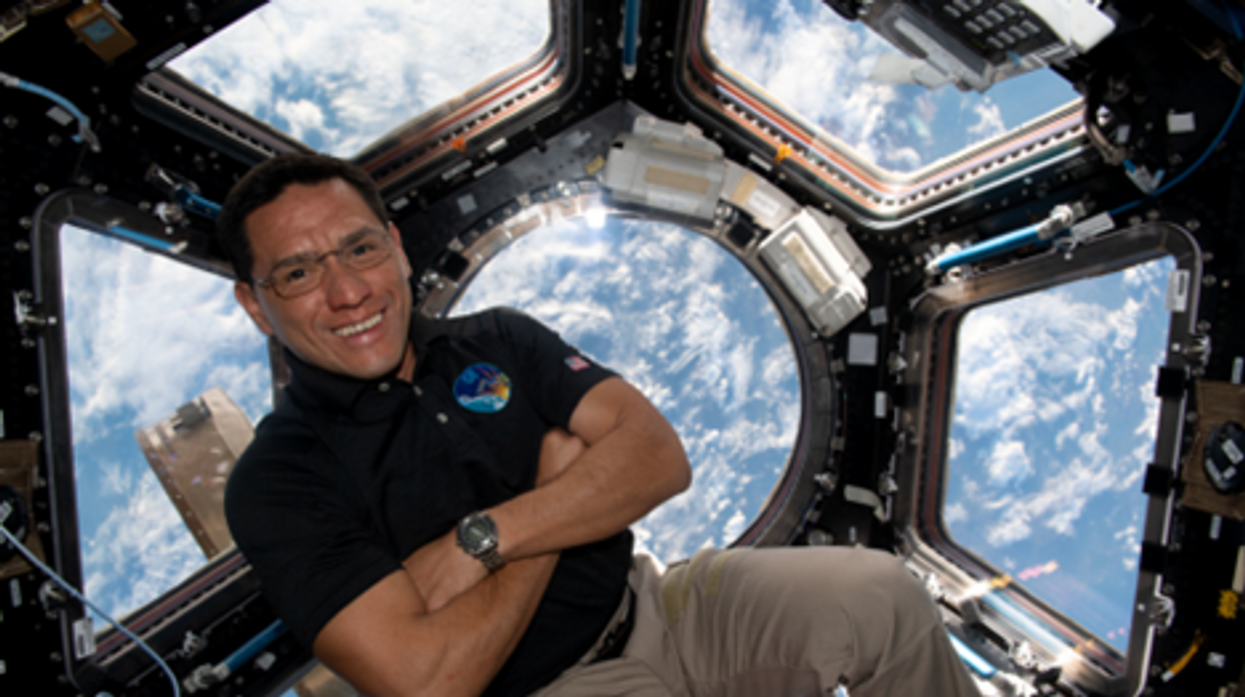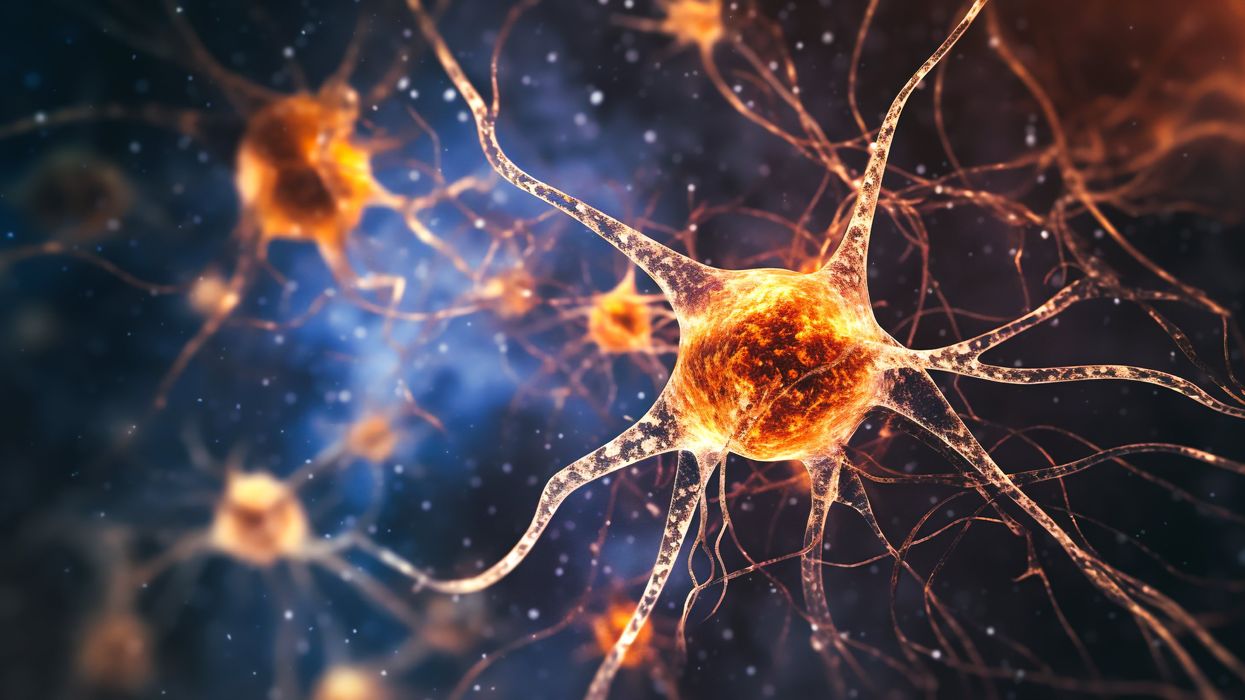Sustainable Urban Farming Has a Rising Hot Star: Bugs
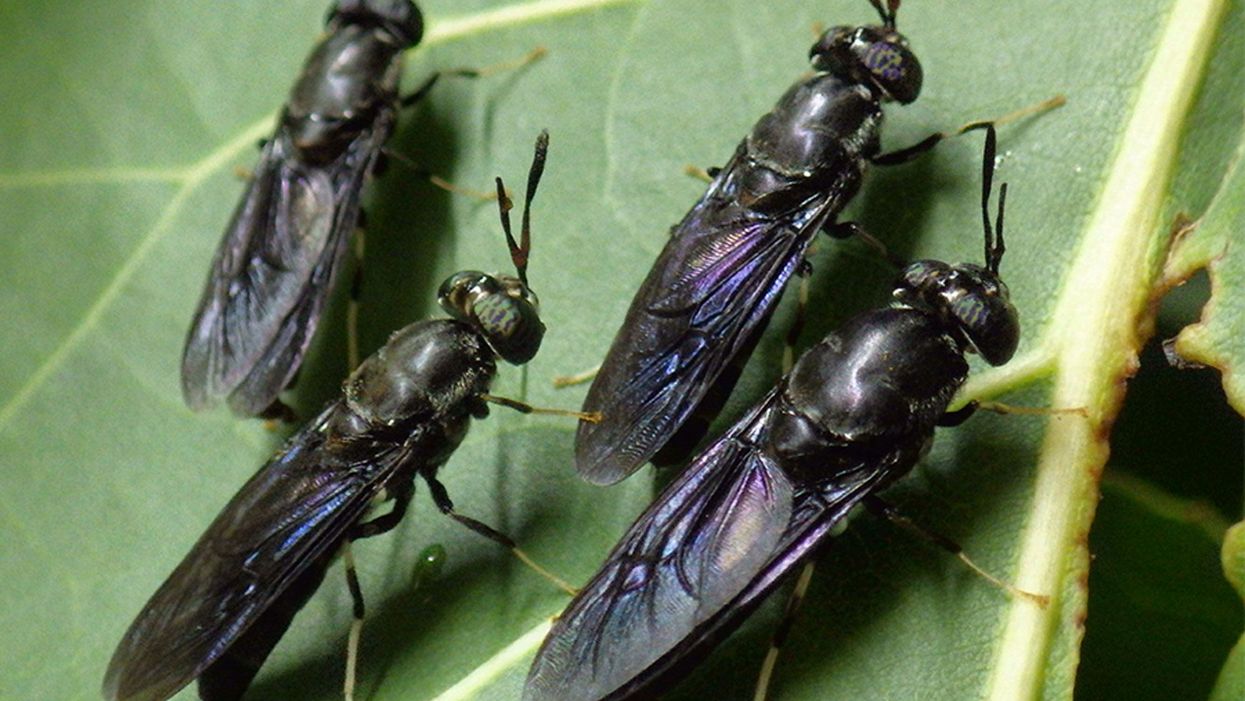
The larvae of adult black soldier flies can turn food waste into sustainable protein with minimal methane gas emissions.
In Sydney, Australia, in the basement of an inner-city high-rise, lives a mass of unexpected inhabitants: millions of maggots. The insects are far from unwelcome. They are there to feast on the food waste generated by the building's human residents.
Goterra, the start-up that installed the maggots in the building in December, belongs to the rapidly expanding insect agriculture industry, which is experiencing a surge of investment worldwide.
The maggots – the larvae of the black soldier fly – are voracious, unfussy eaters. As adult flies, they don't eat, so the young fatten up swiftly on whatever they can get. Goterra's basement colony can munch through 5 metric tons of waste in a day.
"Maggots are nature's cleaners," says Bob Gordon, Head of Growth at Goterra. "They're a great tool to manage waste streams."
Their capacity to consume presents a neat response to the problem of food waste, which contributes up to 8% of global greenhouse gas emissions each year as it rots in landfill.
"The maggots eat the food fairly fresh," Gordon says. "So, there's minimal degradation and you don't get those methane emissions."
Alongside their ability to devour waste, the soldier fly larvae hold further agricultural promise: they yield an incredibly efficient protein. After the maggots have binged for about 12 days, Goterra harvests and processes them into a protein-rich livestock feed. Their excrement, known as frass, is also collected and turned into soil conditioner.
"We are producing protein in a basement," says Gordon. "It's urban farming – really sustainable, urban farming."
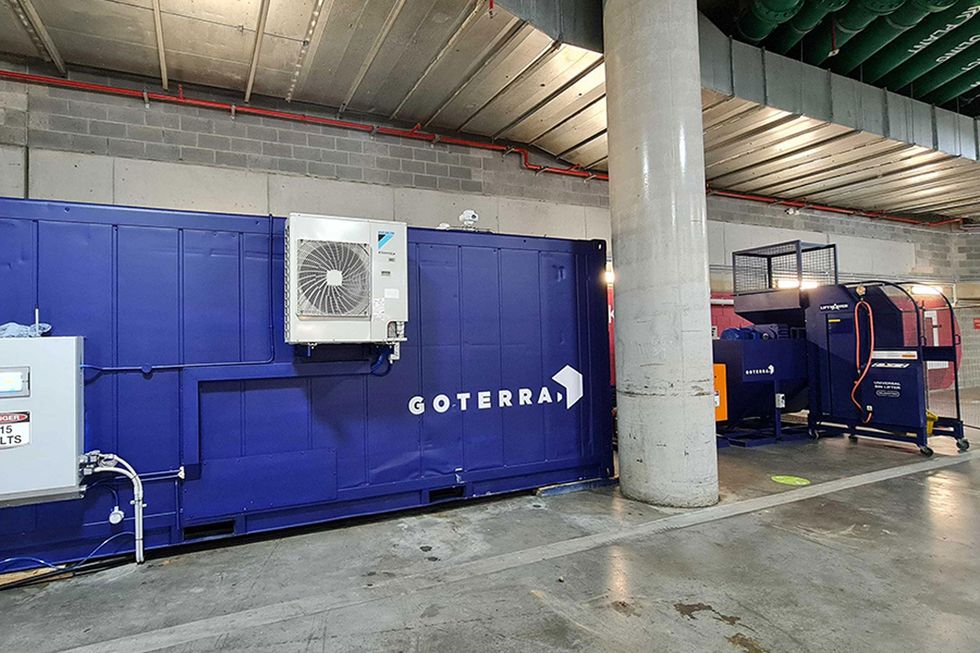
Goterra's module in the basement at Barangaroo, Sydney.
Supplied by Goterra
Goterra's founder Olympia Yarger started producing the insects in "buckets in her backyard" in 2016. Today, Goterra has a large-scale processing plant and has developed proprietary modules – in shipping containers – that use robotics to manage the larvae.
The modules have been installed on site at municipal buildings, hospitals, supermarkets, several McDonald's restaurants, and a range of smaller enterprises in Australia. Users pay a subscription fee and simply pour in the waste; Goterra visits once a fortnight to harvest the bugs.
Insect agriculture is well established outside of the West, and the practice is gaining traction around the world. China has mega-facilities that can process hundreds of tons of waste in a day. In Kenya, a program recently trained 2000 farmers in soldier fly farming to boost their economic security. French biotech company InnovaFeed, in partnership with US agricultural heavyweight ADM, plans to build "the world's largest insect protein facility" in Illinois this year.
"The [maggots] are science fiction on earth. Watching them work is awe-inspiring."
But the concept is still not to everyone's taste.
"This is still a topic that I say is a bit like black liquorice – people tend to either really like it or really don't," says Wendy Lu McGill, Communications Director at the North American Coalition of Insect Agriculture (NACIA).
Formed in 2016, NACIA now has over 100 members – including researchers and commercial producers of black soldier flies, meal worms and crickets.
McGill says there have been a few iterations of insect agriculture in the US – beginning with worms produced for bait after World War II then shifting to food for exotic pets. The current focus – "insects as food and feed" – took root about a decade ago, with the establishment of the first commercial farms for this purpose.
"We're starting to see more expansion in the U.S. and a lot of the larger investments have been for black soldier fly producers," McGill says. "They tend to have larger facilities and the animal feed market they're looking at is potentially quite large."
InnovaFeed's Illinois facility is set to produce 60,000 metric tons of animal feed protein per year.
"They'll be trying to employ many different circular principles," McGill says of the project. "For example, the heat from the feed factory – the excess heat that would normally just be vented – will be used to heat the other side that's raising the black soldier fly."
Although commercial applications have started to flourish recently, scientific knowledge of the black soldier fly's potential has existed for decades.
Dr. Jeffery Tomberlin, an entomologist at Texas A&M University, has been studying the insect for over 20 years, contributing to key technologies used in the industry. He also founded Evo, a black soldier fly company in Texas, which feeds its larvae the waste from a local bakery and distillery.
"They are science fiction on earth," he says of the maggots. "Watching them work is awe-inspiring."
Tomberlin says fly farms can work effectively at different scales, and present possibilities for non-Western countries to shift towards "commodity independence."
"You don't have to have millions of dollars invested to be successful in producing this insect," he says. "[A farm] can be as simple as an open barn along the equator to a 30,000 square-foot indoor facility in the Netherlands."
As the world's population balloons, food insecurity is an increasing concern. By 2050, the UN predicts that to feed our projected population we will need to ramp up food production by at least 60%. Insect agriculture, which uses very little land and water compared to traditional livestock farming, could play a key role.
Insects may become more common human food, but the current commercial focus is animal feed. Aquaculture is a key market, with insects presenting an alternative to fish meal derived from over-exploited stocks. Insect meal is also increasingly popular in pet food, particularly in Europe.
While recent investment has been strong – NACIA says 2020 was the best year yet – reaching a scale that can match existing agricultural industries and providing a competitive price point are still hurdles for insect agriculture.
But COVID-19 has strengthened the argument for new agricultural approaches, such as the decentralized, indoor systems and circular principles employed by insect farms.
"This has given the world a preview – which no one wanted – of [future] supply chain disruptions," says McGill.
As the industry works to meet demand, Tomberlin predicts diversification and product innovation: "I think food science is going to play a big part in that. They can take an insect and create ice cream." (Dried soldier fly larvae "taste kind of like popcorn," if you were wondering.)
Tomberlin says the insects could even become an interplanetary protein source: "I do believe in that. I mean, if we're going to colonize other planets, we need to be sustainable."
But he issues a word of caution about the industry growing too big, too fast: "I think we as an industry need to be very careful of how we harness and apply [our knowledge]. The black soldier fly is considered the crown jewel today, but if it's mismanaged, it can be relegated back to a past."
Goterra's Gordon also warns against rushing into mass production: "If you're just replacing big intensive animal agriculture with big intensive animal agriculture with more efficient animals, then what's the change you're really effecting?"
But he expects the industry will continue its rise though the next decade, and Goterra – fuelled by recent $8 million Series A funding – plans to expand internationally this year.
"Within 10 years' time, I would like to see the vast majority of our unavoidable food waste being used to produce maggots to go into a protein application," Gordon says.
"There's no lack of demand. And there's no lack of food waste."
After spaceflight record, NASA looks to protect astronauts on even longer trips
NASA astronaut Frank Rubio floats by the International Space Station’s “window to the world.” Yesterday, he returned from the longest single spaceflight by a U.S. astronaut on record - over one year. Exploring deep space will require even longer missions.
At T-minus six seconds, the main engines of the Atlantis Space Shuttle ignited, rattling its capsule “like a skyscraper in an earthquake,” according to astronaut Tom Jones, describing the 1988 launch. As the rocket lifted off and accelerated to three times the force of Earth's gravity, “It felt as if two of my friends were standing on my chest and wouldn’t get off.” But when Atlantis reached orbit, the main engines cut off, and the astronauts were suddenly weightless.
Since 1961, NASA has sent hundreds of astronauts into space while working to making their voyages safer and smoother. Yet, challenges remain. Weightlessness may look amusing when watched from Earth, but it has myriad effects on cognition, movement and other functions. When missions to space stretch to six months or longer, microgravity can impact astronauts’ health and performance, making it more difficult to operate their spacecraft.
Yesterday, NASA astronaut Frank Rubio returned to Earth after over one year, the longest single spaceflight for a U.S. astronaut. But this is just the start; longer and more complex missions into deep space loom ahead, from returning to the moon in 2025 to eventually sending humans to Mars. To ensure that these missions succeed, NASA is increasing efforts to study the biological effects and prevent harm.
The dangers of microgravity are real
A NASA report published in 2016 details a long list of incidents and near-misses caused – at least partly – by space-induced changes in astronauts’ vision and coordination. These issues make it harder to move with precision and to judge distance and velocity.
According to the report, in 1997, a resupply ship collided with the Mir space station, possibly because a crew member bumped into the commander during the final docking maneuver. This mishap caused significant damage to the space station.
Returns to Earth suffered from problems, too. The same report notes that touchdown speeds during the first 100 space shuttle landings were “outside acceptable limits. The fastest landing on record – 224 knots (258 miles) per hour – was linked to the commander’s momentary spatial disorientation.” Earlier, each of the six Apollo crews that landed on the moon had difficulty recognizing moon landmarks and estimating distances. For example, Apollo 15 landed in an unplanned area, ultimately straddling the rim of a five-foot deep crater on the moon, harming one of its engines.
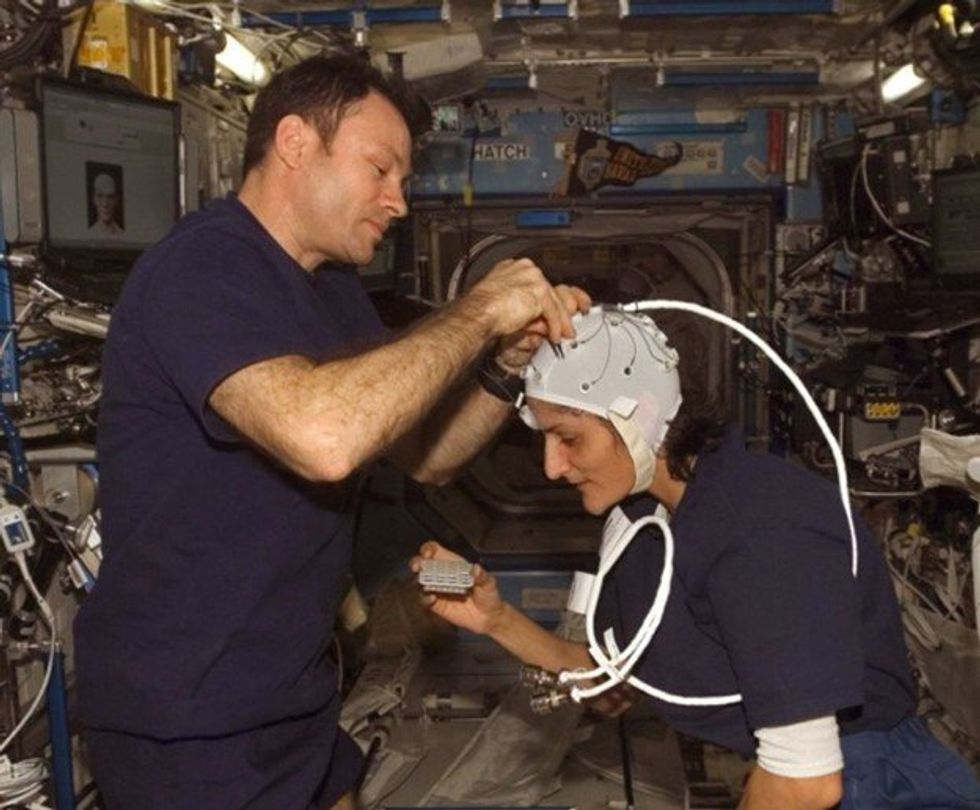
Spaceflight causes unique stresses on astronauts’ brains and central nervous systems. NASA is working to reduce these harmful effects.
NASA
Space messes up your brain
In space, astronauts face the challenges of microgravity, ionizing radiation, social isolation, high workloads, altered circadian rhythms, monotony, confined living quarters and a high-risk environment. Among these issues, microgravity is one of the most consequential in terms of physiological changes. It changes the brain’s structure and its functioning, which can hurt astronauts’ performance.
The brain shifts upwards within the skull, displacing the cerebrospinal fluid, which reduces the brain’s cushioning. Essentially, the brain becomes crowded inside the skull like a pair of too-tight shoes.
That’s partly because of how being in space alters blood flow. On Earth, gravity pulls our blood and other internal fluids toward our feet, but our circulatory valves ensure that the fluids are evenly distributed throughout the body. In space, there’s not enough gravity to pull the fluids down, and they shift up, says Rachael D. Seidler, a physiologist specializing in spaceflight at the University of Florida and principal investigator on many space-related studies. The head swells and legs appear thinner, causing what astronauts call “puffy face chicken legs.”
“The brain changes at the structural and functional level,” says Steven Jillings, equilibrium and aerospace researcher at the University of Antwerp in Belgium. “The brain shifts upwards within the skull,” displacing the cerebrospinal fluid, which reduces the brain’s cushioning. Essentially, the brain becomes crowded inside the skull like a pair of too-tight shoes. Some of the displaced cerebrospinal fluid goes into cavities within the brain, called ventricles, enlarging them. “The remaining fluids pool near the chest and heart,” explains Jillings. After 12 consecutive months in space, one astronaut had a ventricle that was 25 percent larger than before the mission.
Some changes reverse themselves while others persist for a while. An example of a longer-lasting problem is spaceflight-induced neuro-ocular syndrome, which results in near-sightedness and pressure inside the skull. A study of approximately 300 astronauts shows near-sightedness affects about 60 percent of astronauts after long missions on the International Space Station (ISS) and more than 25 percent after spaceflights of only a few weeks.
Another long-term change could be the decreased ability of cerebrospinal fluid to clear waste products from the brain, Seidler says. That’s because compressing the brain also compresses its waste-removing glymphatic pathways, resulting in inflammation, vulnerability to injuries and worsening its overall health.
The effects of long space missions were best demonstrated on astronaut twins Scott and Mark Kelly. This NASA Twins Study showed multiple, perhaps permanent, changes in Scott after his 340-day mission aboard the ISS, compared to Mark, who remained on Earth. The differences included declines in Scott’s speed, accuracy and cognitive abilities that persisted longer than six months after returning to Earth in March 2016.
By the end of 2020, Scott’s cognitive abilities improved, but structural and physiological changes to his eyes still remained, he said in a BBC interview.
“It seems clear that the upward shift of the brain and compression of the surrounding tissues with ventricular expansion might not be a good thing,” Seidler says. “But, at this point, the long-term consequences to brain health and human performance are not really known.”
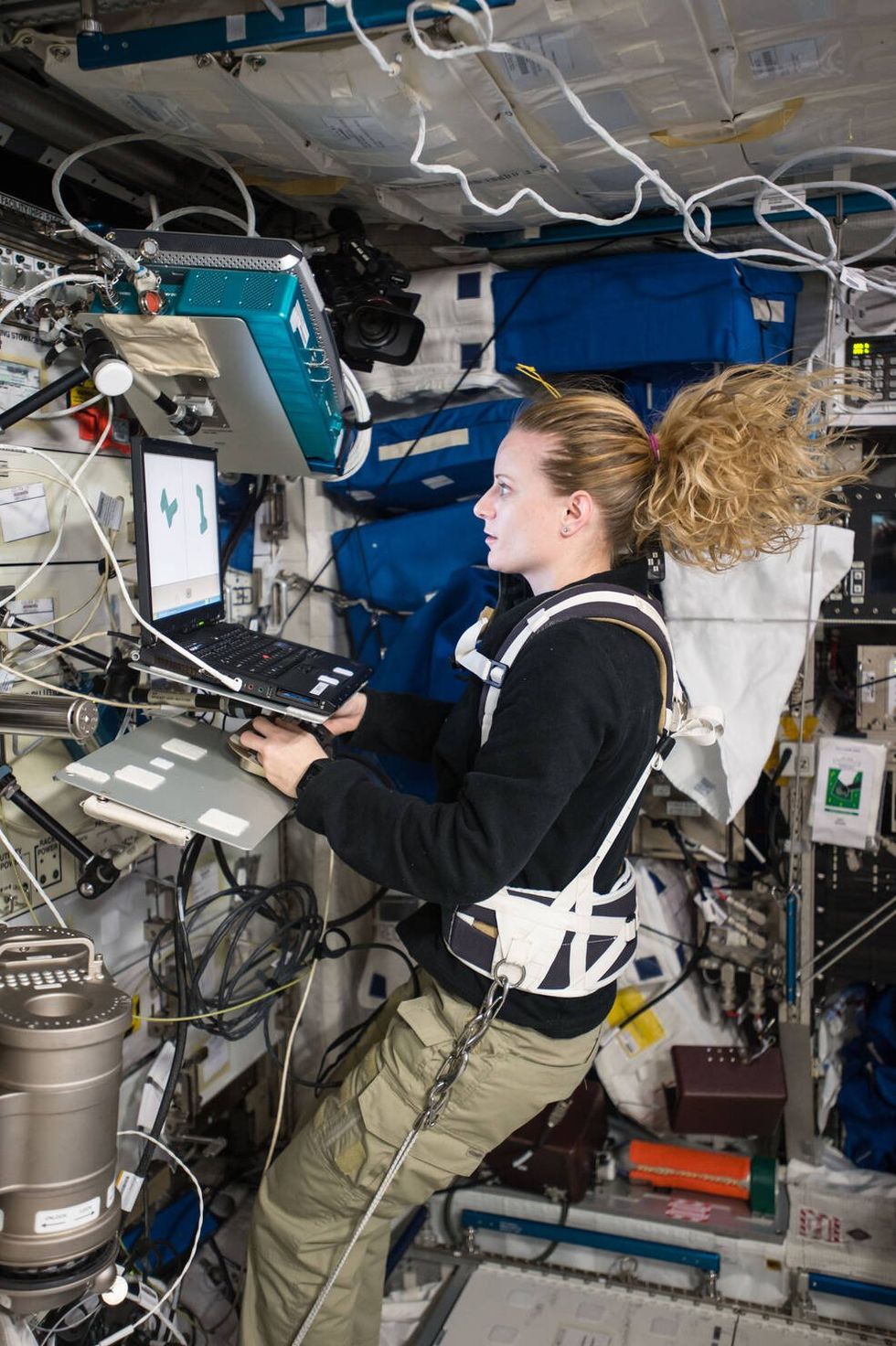
NASA astronaut Kate Rubins conducts a session for the Neuromapping investigation.
NASA
Staying sharp in space
To investigate how prolonged space travel affects the brain, NASA launched a new initiative called the Complement of Integrated Protocols for Human Exploration Research (CIPHER). “CIPHER investigates how long-duration spaceflight affects both brain structure and function,” says neurobehavioral scientist Mathias Basner at the University of Pennsylvania, a principal investigator for several NASA studies. “Through it, we can find out how the brain adapts to the spaceflight environment and how certain brain regions (behave) differently after – relative to before – the mission.”
To do this, he says, “Astronauts will perform NASA’s cognition test battery before, during and after six- to 12-month missions, and will also perform the same test battery in an MRI scanner before and after the mission. We have to make sure we better understand the functional consequences of spaceflight on the human brain before we can send humans safely to the moon and, especially, to Mars.”
As we go deeper into space, astronauts cognitive and physical functions will be even more important. “A trip to Mars will take about one year…and will introduce long communication delays,” Seidler says. “If you are on that mission and have a problem, it may take eight to 10 minutes for your message to reach mission control, and another eight to 10 minutes for the response to get back to you.” In an emergency situation, that may be too late for the response to matter.
“On a mission to Mars, astronauts will be exposed to stressors for unprecedented amounts of time,” Basner says. To counter them, NASA is considering the continuous use of artificial gravity during the journey, and Seidler is studying whether artificial gravity can reduce the harmful effects of microgravity. Some scientists are looking at precision brain stimulation as a way to improve memory and reduce anxiety due to prolonged exposure to radiation in space.
Other scientists are exploring how to protect neural stem cells (which create brain cells) from radiation damage, developing drugs to repair damaged brain cells and protect cells from radiation.
To boldly go where no astronauts have gone before, they must have optimal reflexes, vision and decision-making. In the era of deep space exploration, the brain—without a doubt—is the final frontier.
Additionally, NASA is scrutinizing each aspect of the mission, including astronaut exercise, nutrition and intellectual engagement. “We need to give astronauts meaningful work. We need to stimulate their sensory, cognitive and other systems appropriately,” Basner says, especially given their extreme confinement and isolation. The scientific experiments performed on the ISS – like studying how microgravity affects the ability of tissue to regenerate is a good example.
“We need to keep them engaged socially, too,” he continues. The ISS crew, for example, regularly broadcasts from space and answers prerecorded questions from students on Earth, and can engage with social media in real time. And, despite tight quarters, NASA is ensuring the crew capsule and living quarters on the moon or Mars include private space, which is critical for good mental health.
Exploring deep space builds on a foundation that began when astronauts first left the planet. With each mission, scientists learn more about spaceflight effects on astronauts’ bodies. NASA will be using these lessons to succeed with its plans to build science stations on the moon and, eventually, Mars.
“Through internally and externally led research, investigations implemented in space and in spaceflight simulations on Earth, we are striving to reduce the likelihood and potential impacts of neurostructural changes in future, extended spaceflight,” summarizes NASA scientist Alexandra Whitmire. To boldly go where no astronauts have gone before, they must have optimal reflexes, vision and decision-making. In the era of deep space exploration, the brain—without a doubt—is the final frontier.
A newly discovered brain cell may lead to better treatments for cognitive disorders
Swiss researchers have found a type of brain cell that appears to be a hybrid of the two other main types — and it could lead to new treatments for brain disorders.
Swiss researchers have discovered a third type of brain cell that appears to be a hybrid of the two other primary types — and it could lead to new treatments for many brain disorders.
The challenge: Most of the cells in the brain are either neurons or glial cells. While neurons use electrical and chemical signals to send messages to one another across small gaps called synapses, glial cells exist to support and protect neurons.
Astrocytes are a type of glial cell found near synapses. This close proximity to the place where brain signals are sent and received has led researchers to suspect that astrocytes might play an active role in the transmission of information inside the brain — a.k.a. “neurotransmission” — but no one has been able to prove the theory.
A new brain cell: Researchers at the Wyss Center for Bio and Neuroengineering and the University of Lausanne believe they’ve definitively proven that some astrocytes do actively participate in neurotransmission, making them a sort of hybrid of neurons and glial cells.
According to the researchers, this third type of brain cell, which they call a “glutamatergic astrocyte,” could offer a way to treat Alzheimer’s, Parkinson’s, and other disorders of the nervous system.
“Its discovery opens up immense research prospects,” said study co-director Andrea Volterra.
The study: Neurotransmission starts with a neuron releasing a chemical called a neurotransmitter, so the first thing the researchers did in their study was look at whether astrocytes can release the main neurotransmitter used by neurons: glutamate.
By analyzing astrocytes taken from the brains of mice, they discovered that certain astrocytes in the brain’s hippocampus did include the “molecular machinery” needed to excrete glutamate. They found evidence of the same machinery when they looked at datasets of human glial cells.
Finally, to demonstrate that these hybrid cells are actually playing a role in brain signaling, the researchers suppressed their ability to secrete glutamate in the brains of mice. This caused the rodents to experience memory problems.
“Our next studies will explore the potential protective role of this type of cell against memory impairment in Alzheimer’s disease, as well as its role in other regions and pathologies than those explored here,” said Andrea Volterra, University of Lausanne.
But why? The researchers aren’t sure why the brain needs glutamatergic astrocytes when it already has neurons, but Volterra suspects the hybrid brain cells may help with the distribution of signals — a single astrocyte can be in contact with thousands of synapses.
“Often, we have neuronal information that needs to spread to larger ensembles, and neurons are not very good for the coordination of this,” researcher Ludovic Telley told New Scientist.
Looking ahead: More research is needed to see how the new brain cell functions in people, but the discovery that it plays a role in memory in mice suggests it might be a worthwhile target for Alzheimer’s disease treatments.
The researchers also found evidence during their study that the cell might play a role in brain circuits linked to seizures and voluntary movements, meaning it’s also a new lead in the hunt for better epilepsy and Parkinson’s treatments.
“Our next studies will explore the potential protective role of this type of cell against memory impairment in Alzheimer’s disease, as well as its role in other regions and pathologies than those explored here,” said Volterra.
